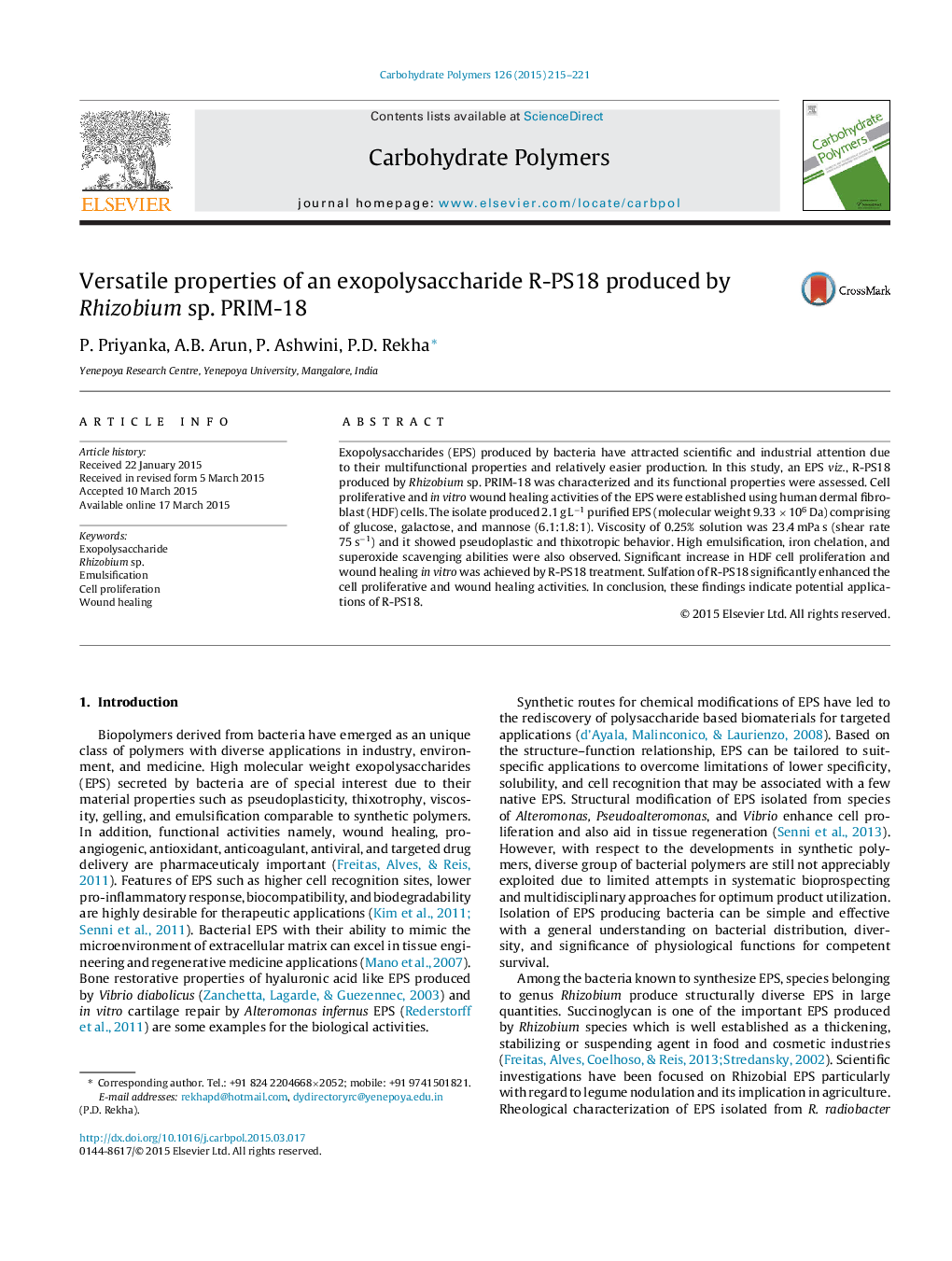| Article ID | Journal | Published Year | Pages | File Type |
|---|---|---|---|---|
| 1383627 | Carbohydrate Polymers | 2015 | 7 Pages |
•Rhizobium sp. PRIM-18 produces a major EPS (R-PS18) with MW of 9.33 × 106 Da.•Monosaccharide composition of R-PS18 was glucose, galactose, and mannose.•R-PS18 was pseudoplastic and thixotropic in nature with high emulsifying activity.•R-PS18 treatment enhanced HDF cell proliferation and wound healing in vitro.•Sulfation of R-PS18 significantly improved its wound healing activity.
Exopolysaccharides (EPS) produced by bacteria have attracted scientific and industrial attention due to their multifunctional properties and relatively easier production. In this study, an EPS viz., R-PS18 produced by Rhizobium sp. PRIM-18 was characterized and its functional properties were assessed. Cell proliferative and in vitro wound healing activities of the EPS were established using human dermal fibroblast (HDF) cells. The isolate produced 2.1 g L−1 purified EPS (molecular weight 9.33 × 106 Da) comprising of glucose, galactose, and mannose (6.1:1.8:1). Viscosity of 0.25% solution was 23.4 mPa s (shear rate 75 s−1) and it showed pseudoplastic and thixotropic behavior. High emulsification, iron chelation, and superoxide scavenging abilities were also observed. Significant increase in HDF cell proliferation and wound healing in vitro was achieved by R-PS18 treatment. Sulfation of R-PS18 significantly enhanced the cell proliferative and wound healing activities. In conclusion, these findings indicate potential applications of R-PS18.
